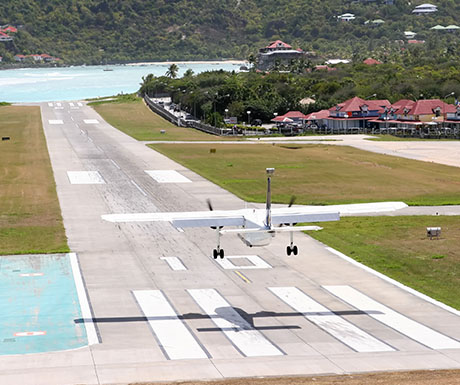For some of us, the airport is only part of the travel experience because we’re forced to go through it. Aching to get on with your dream holiday, nothing can be worse than standing in a queue with thousandsof other passengers to get your passport stamped. For others, an airport is an amazing example of stalwart engineering and wonder. To help you see the airport world from the exciting perspective of a plane spotter, here are my top 5 airports in the world:
Princess Juliana International Airport, Saint Maarten
You have probably heard of this airport before, it is one of the most popular airports with travellers thanks to the fact that apron of the active runway is right next to the famous Maho Beach. Huge airliners like the Boeing 747 or Airbus A340 landing at the small airport fly so low to the ground, photos taken by tourists give the impression you can almost reach up and touch their bellies. Thrill seekers often hold onto the roadside fence waiting for the jetblast from aircraft taking off. We don’t recommend this of course, nor do all the warning signs next to the fence!
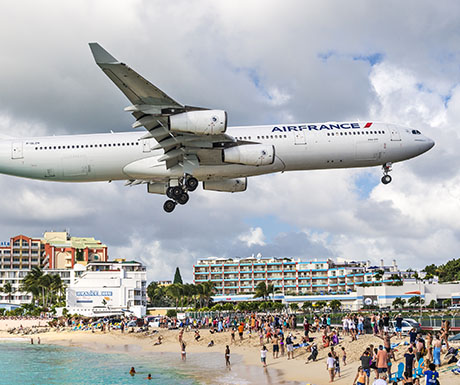
Gibraltar Airport, Gibraltar
Now a civilian airport that serves the British territory of Gibraltar, it was originally constructed during World War II and was an important base for the British. What makes this airport unique is, thanks to thelimited space that was available, the runway intersects a public road. Akin to a rail crossing, cars travelling on the road would cross the runway. There are of course safety barriers preventing cars from entering the runway when an airplane takes off or comes in to land, but it is still rather exciting to drive across something usually fenced off to the general public.
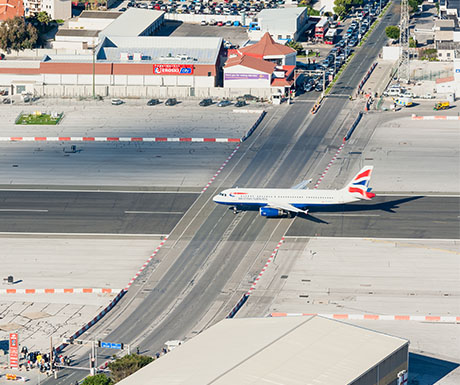
Barra Airport, Scotland
Barra Airport is the only airport in the world that is also a beach. The beach is set out with three runways in a triangle so planes are able to land into the wind, and is marked by permanent wooden poles at the ends. The twin otter aircraft that service this airport has a bit of a funny schedule, as they can only land at low tide. At high tide the runways are under the sea. Emergency flights do occasionally operate at night time, with vehicle lights and reflective strips used to illuminate the runways.
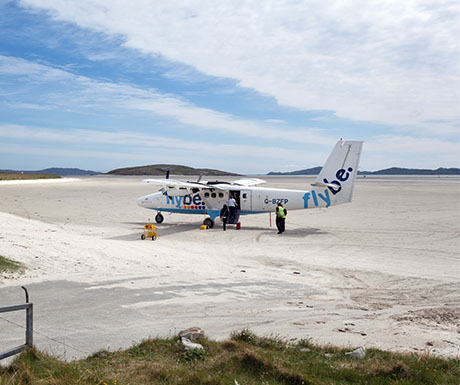
Wellington International Airport, New Zealand
Wellington airport features a short 2,081 metre runway, bordering the ocean on both ends. Passengers will get very close to the water before the airplane settles down on the runways, and Wellington’s famous wind often makes landing at this small airport very exciting, and challenging for the crew. Only smaller aircraft operate from this airport now, with Boeing 737 or Airbus A320 aircraft being the biggest. and even then the runway is too short for these aircraft to take off at their maximum weight, which is interesting because during the 1980′s Qantas used to fly their Special Performance 747′s to Wellington airport!
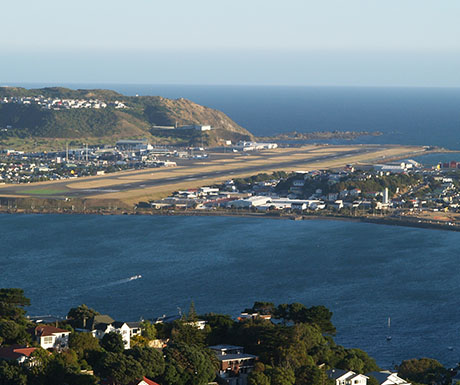
Gustaf III Airport,Saint Barthlemy
Named after King Gustav III of Sweden, this small airport services the Caribbean island of SaintBarthlemy. The airport is served by small regional charter aircraft, usually with fewer than 20 passengers on board. The runway sits at the bottom of a gentle slope, and ends directly on the beach below. Aircraft landing at this small airstrip has to descend at a very steep angle to clear the hilltop road, often coming very close to cars below. Departing aircraft does so over the heads of sunbathers on the beach, though signs on the beach do warn beachgoers not to lie directly beneath the flight path.
